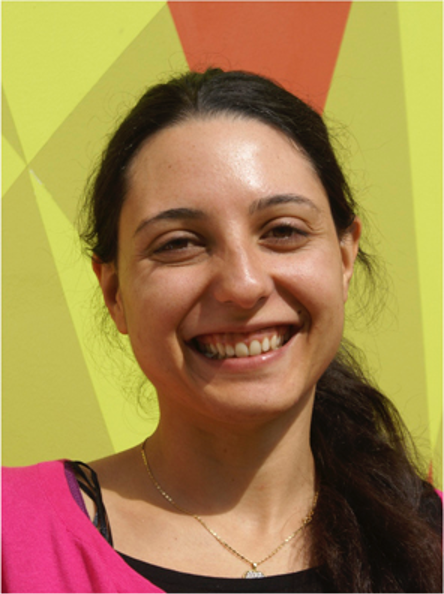Andrea Beccari - DOMPE Farmaceutici SPA
Exscalate4CoV, an introduction
Carmine Talarico - DOMPE Farmaceutici SPA
The computational Task in Exscalate4CoV
Giulia Rossetti - Forschungszentrum Julich and RWTH Aachen
Computational approaches to drug repurposing
Tuesday April 28 2020
Andrea Beccari

Exscalate4CoV, an introduction
Andrea Beccaris Head is of the R&D Platforms and Services of Dompé Farmaceutici SpA and responsible the Joint Bioinformatics Groups at the IBP institute of the National Research Council of Italy. He led the drug discovery programs and then became responsible for the technological platform R&D, supporting pharmaceutical research activities with computer aided design, advanced modelling and large scale simulations in Dompé. He was promoter and coordinator of the open innovation initiative: Italian Drug Discovery Network and co-founder and member of the board of the Avicenna Alliance (Brussel), an association of industry and research institutions with the aim to overcome limitations of the pre-digital era, by the development of in silico simulations up to a scale necessary to provide personalized treatments and predictive medicine. He was the originator and chairman of the Computationally Driven Drug Discovery and Italian Drug Discovery Summit series of meetings and has co-organized several initiatives with the European commission and parliament promoting the use of in silico simulation to increase the awareness towards the potentiality of high performance computing in healthcare. Dr. Beccari is the coordinator of the Exscalate4CoV project.
Carmine Talarico

The computational Task in Exscalate4CoV
The main objective of the Drug Discovery TASK FORCE is the exploitation of the EXSCALATE platform, combined with other Computational tools, to identify the most promising safe in man drugs and de novo small molecules to be active against coronavirus. In the first steps, validated 3D structure models of COVID-19 proteins will be obtained from MD simulations on in-house generated homology models, and the already experimentally obtained 3D structure. Two sets of simulations will be performed at a different scale, respectively PRACE Tier-0 HPC systems and EuroHPC pre-exascale systems, to virtual screen in a first phase the Safe in Man (SIM) library, containing the commercialized and developing drugs (> 10000), to identify the most promising safe in man drugs ready for immediate treatment of the infected population, and in the second phase the TCS to identify new potential pan Coronavirus inhibitors.
Carmine Talarico is a computational chemistry researcher at Dompé farmaceutici SpA and the leader of the computational Task in Exscalate4CoV. He is also Project Leader of the PRACE granted project called Antarex for Zika, a project that has been recognized as having clear societal impact that will harness the power of HPC to fight diseases that overwhelmingly affect developing countries. He is an expert in modeling of small molecules, structure/ligand-based drug design, pharmacophores development, homology modeling, protein threading, property prediction, high-throughput and single-molecule docking, ab initio and semiempirical quantum chemical calculations, molecular mechanics, molecular dynamics simulation methodologies and conformational analysis.
Giulia Rossetti

Computational approaches to drug repurposing
We have recently created a tailored research team to target viral proteins for drug design. This research activity is mostly within the framework of the project EXSCALATE4CoronaVirus within the EU coronavirus H2020 program. It involves the Jülich, CINECA, Barcelona Supercomputing centers, the Dompè Pharma company, the Fraunhofer Institute, and others, for a total of 18 computational and experimental groups. The aim of the research team is to identify, by virtual screening, effective antiviral drugs against proteins responsible for the virus survival, among the currently commercially available drugs. Preliminary results will be presented here.
Repurposing existing, approved drugs accelerates their transfer into clinical practice remarkably, because their safety has already been proven. In this framework, we plan to establish an effective AI- and HPC-based platform to generate and analyze 3D models, along with protocols for experimental 3D structure resolution (X-Ray, Cryo-EM, ..,) of protein targets from pandemic pathogens. This will lead to a sustainable infrastructure for a fast scientific answer to future pandemic scenarios.
Giulia Rossetti is professor at the Medical faculty of RWTH University in Aachen, Germany and group leader at the Institute of Neuroscience and Medicine and Jülich Supercomputing. She is scientific manager of the co-design project for drug design and leader of the Molecular Simulation Task in the Human Brain Project. She is also a project leader in the recently approved “Helmholtz Information & Data Science School for Data Science in Life, Earth, and Energy” (HDS-LEE), as well as member of the corresponding steering committee. She was recently awarded of the EU grant ‘STIMULATE’, a Marie Skłodowska-Curie grant for an Innovative Training Network, which involves several universities across Europe. The aim of STIMULATE is to deliver an innovative interdisciplinary educational and research program in simulation and data science, which educates students to address the challenges posed by exascale computing and intensive data applications.
Prof. Rossetti’s group is specialized in modeling structure, dynamics and molecular interactions of key targets in diseases’ cause and progression. Virtual screening and drug design exploiting molecular modeling are central activities in her lab. Her research is mostly focused on neuropathologies including but not limited to neurodegenerative diseases, neuropathic pain disorders and Schizophrenia. Her group mostly uses HPC-based molecular simulation, ranging from coarse-grain to classical up to ab initio representation, as well as free-energy calculations, bioinformatics and chemoinformatic.
Q & A

 About
About
